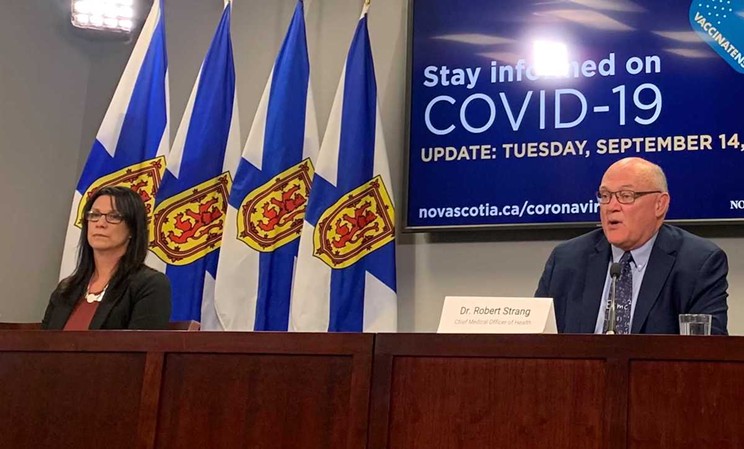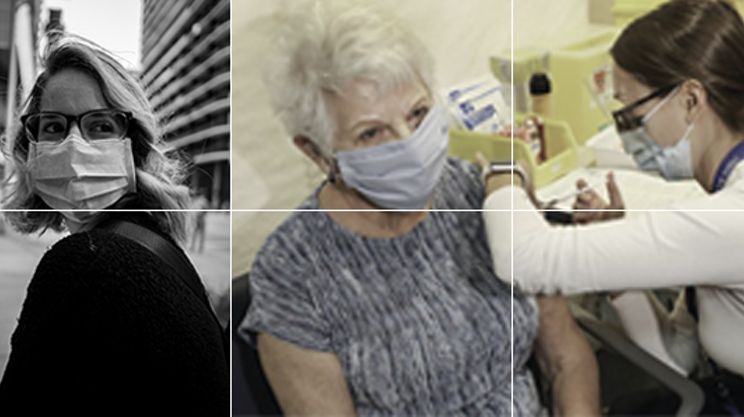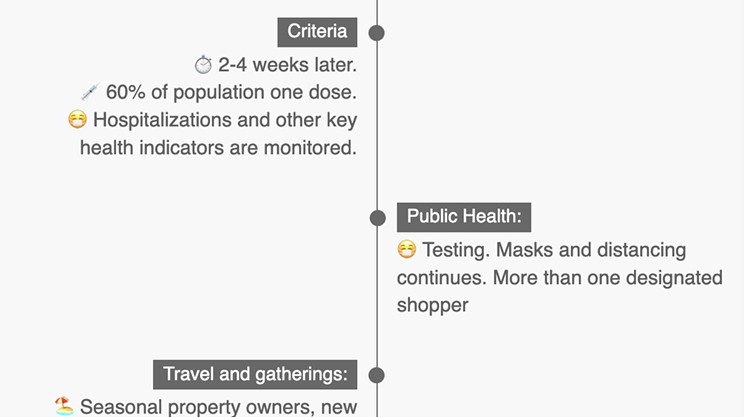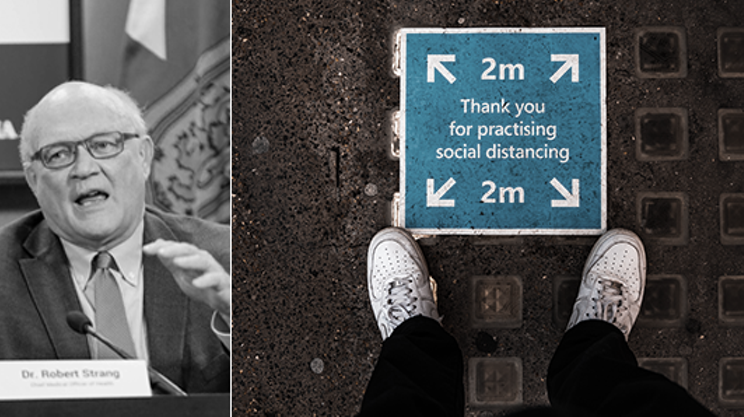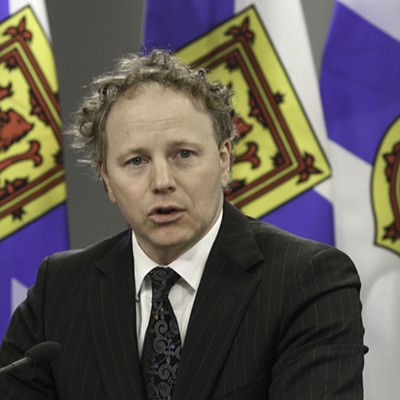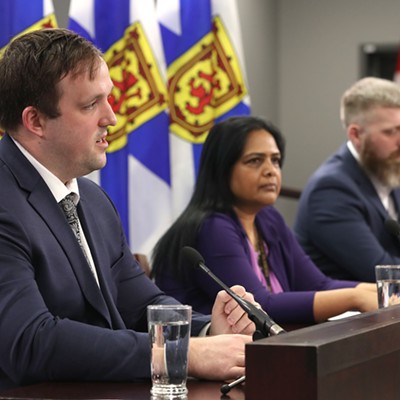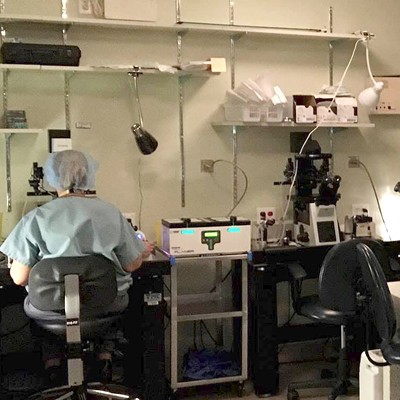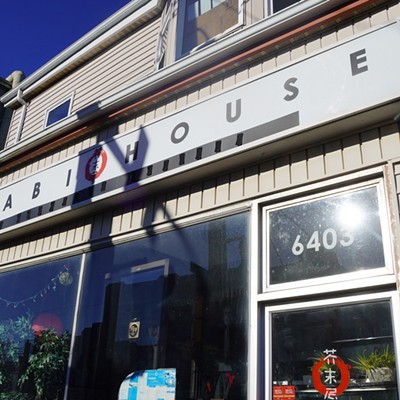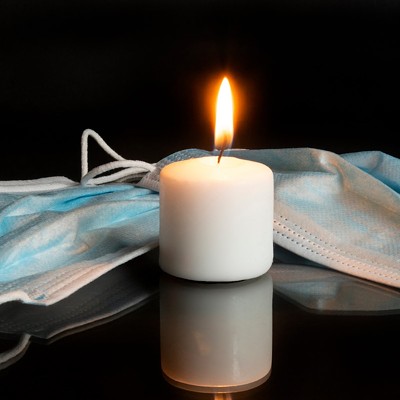With 66 new cases announced Tuesday, and 139 new cases since Friday, the province is delaying the start of Phase 5 reopening until at least October 4. The province currently has 173 active cases and four COVID-19 patients in hospital.
Chief medical officer of health Robert Strang and minister of health and wellness Michelle Thompson announced the extension of Phase 4 during a COVID briefing Tuesday afternoon. Instead of Phase 5’s looser public health regulations starting tomorrow, September 15 as planned, gathering limits will stay in effect and masks will remain mandatory in indoor spaces until at least October 4, the date the provincial proof of vaccination program is due to start. Event venues scheduled to host events at full capacity will be allowed to do so, as long as attendees are vaccinated and masks are worn.
Of today's 66 new cases, 61 are in the Northern health zone, and 59 are close contacts of a previous case. Thompson says the pandemics’s fourth wave has reached Nova Scotia.
“The fourth wave has been rolling across Canada, in New Brunswick and PEI, and now it's here,” Thompson says.
There is a large cluster of linked cases in a defined group in the Northern health zone, Strang says. Most of the group is unvaccinated, "so more cases are expected,” reads a release from the province.
Along with the outbreak in northern Nova Scotia, there are also signs of community spread in Halifax, Thompson says.
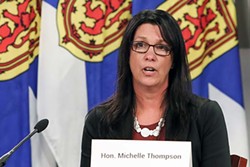
To date the province has administered 1,471,980 doses of vaccine, and 706,250 Nova Scotians have received two doses. Getting to Phase 5 requires the province to be at least 75 percent fully vaccinated—that’s 728,548 people—a level that would be impossible to reach Wednesday at last week's vaccination rate.
This was Nova Scotia’s first pandemic briefing without a premier present. Tim Houston stepped aside for his newly appointed health minister’s debut COVID press conference. Thompson, a former nursing home CEO and registered nurse, is a first-time MLA for Antigonish.
Proof of vaccine in the works
Strang says details of the proof of vaccine policy are still in the works, but he outlined categories of businesses which will require patrons to be vaccinated and which will not. Strang says for the small number of those with a medical contraindication to the vaccine, a policy will be developed to ensure they can attend all types of events and gatherings. Strang stressed that valid contraindications are rare and it will be a small number of people who will qualify. The province will work with primary care providers to approve exemptions.
Quoting from the provincial news release about the vaccination record:
"Starting Oct. 4, people who are 12 and older will need to provide proof of full vaccination to participate in most events and activities that bring groups of people together. While the policy is not yet final, it will apply to:
—full-service restaurants where patrons sit at tables to be served, both indoors and on patios
—liquor licensed establishments, casinos and other gaming establishments, both indoors and on patios
—indoor and outdoor fitness and recreation facilities such as gyms, yoga studios, pools and arenas, as well as fitness classes
—indoor and outdoor leisure facilities and businesses such as dance and music lessons, climbing facilities, escape rooms, pottery painting, indoor play places, arcades, shooting ranges, go-carts and outdoor adventure
—indoor and outdoor festivals, special events, and arts and culture events and venues such as theatre performances, concerts and movie theatres, unless they are outdoor events held in public spaces with no specific entry point, such as Nocturne
—participants and spectators for indoor and outdoor sports practices, games, competitions and tournaments
—indoor and outdoor extracurricular school-based activities, including sports
—bus, boat and walking tours
—museums, public libraries and the Art Gallery of Nova Scotia
—indoor and outdoor events and activities such as receptions, social events, conferences and training that are hosted by a recognized business or organization
—indoor and outdoor wedding and funeral ceremonies, receptions and visitation that are hosted by a recognized business or organization
Proof of vaccination will not be required under the provincewide policy for employees of businesses and organizations that offer these events and activities.
Proof of vaccination will also not be required for most places that don't facilitate formal gatherings, such as:
—retail stores
—financial institutions
—food establishments that primarily offer fast food, takeout and delivery
—professional services such as accountants and lawyers
—personal services such as hair salons, barber shops, spas and body art
—health-care services and health professions such as doctors' offices, dental care, massage therapy and physiotherapy
—rental accommodations such as hotel rooms, cottages and campgrounds
—faith services
—school-based activities that take place during the school day, before and after school programs and school buses
—business meetings and other activities where the general public is not present
—places where government services are offered
—food banks, shelters, Family Resource Centres and adult day programs for seniors or people with disabilities
—informal gatherings at a private residence"

